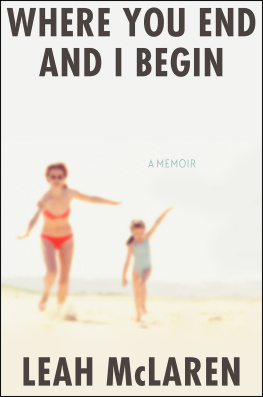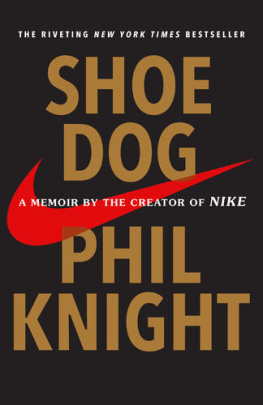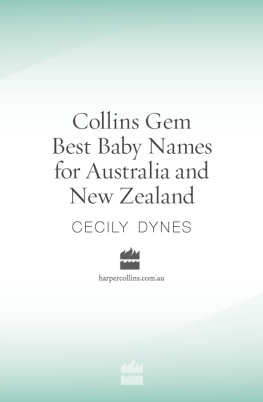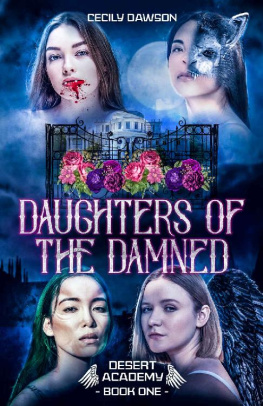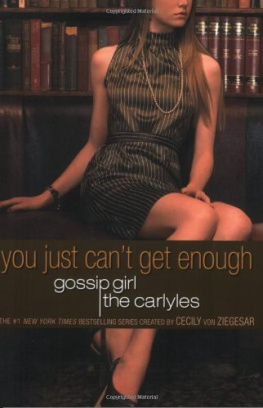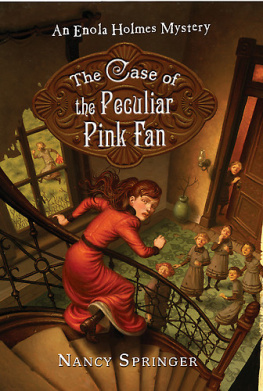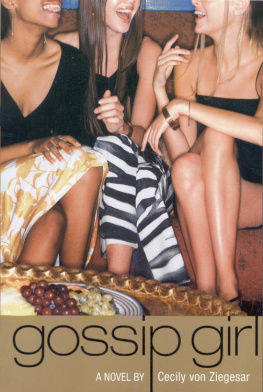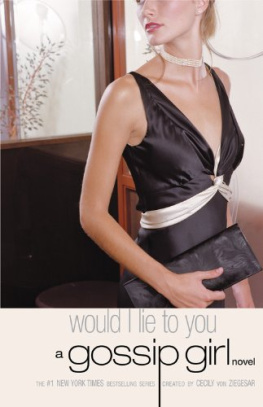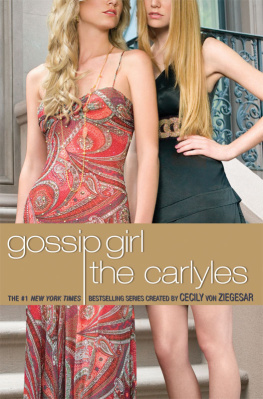Contents
Guide
For Joanna
This book is a factual account of my life, drawn from memory and the diaries I kept from the time of my parents divorce, when I was about eight, through to university, as well as many conversations with family and friends.
It is not intended as a work of investigative journalism, nor should it be read as one. Entire years have been compressed into sentences and fleeting moments are teased out over pages, making them longer to read than they were to live. Memories diverge and others will undoubtedly recall things differently or not at all. As in most memoirs, dialogue has been reconstructed from recollections and notes, and should not be read as verbatim quotes, with the exception of certain conversations that were transcribed from audio recordings or correspondence.
I have tried my best to stay true to the facts, conferring with many of the real people involved and making alterations where appropriate and necessary. Having said that, there will undoubtedly be disagreements and lapses, for which I apologize in advance. The memoir form, like memory itself, is inherently subjective and impressionistic, which is to say fallible. I do not pretend the book you are about to read is an empirical rendering of events but rather an honest representation of my life and experience as I recall it.
The overwhelming sense of dread I felt while parenting my daughters was no passing affliction. For years motherhood felt like a prison. Because I love them, the realization that I have let them down again and again is too much to bear. If I had known then what I know now I would not have chosen motherhood and its unbearable love.
Cecily Ross, Chatelaine, April 2007
Demeter held her dear child in her arms
When, suddenly, her heart suspected treachery
And she trembled terribly.
She stopped hugging her and at once asked her:
My child, tell me, you did not,
did you, eat any food while you were below?...
Then the very beautiful Persephone faced her and said:
Mother, I shall tell you the whole truth...
Song of Demeter, The Homeric Hymns
When I was thirteen I left Cobourg, the town where Id grown up, and moved to Toronto to live with my mother. To celebrate my arrival, she unrolled a foam mattress on the mudroom floor of her one-bedroom rental flat and taped a sign on the leaky mustard-yellow fridge. It was a letter-sized computer printout in block capitals with a single declarative sentence:
COMMITMENT SUCKS THE LIFE RIGHT OUT OF YOU.
This will be our family motto, she said.
Then Mum laughed; we both did. A few days later I asked her what it meant. She was curled up in the deep-white sofa shed liberated years before from the living room of the gray house on Hamilton Avenue. Her head was tilted back against the cushioned armrest, its creamy upholstery tattered and soiled by all the moves. Dragging an upside-down spoonful of peanut butter over her tongue she smiled at me quizzically, closed her lips, and swallowed with effort. In a voice that was both gentle and cutting, she said two words she has said to me many times since.
Youll see.
In the spring of that year, my first year at drama school, a heat wave envelops the city. The temperature rises twenty degrees in a single day. My friends and I tear off our coats and scarves and fall into each others arms sighing, as if reunited after a long absence. The humidity settles in and after a few days everyone is bewildered, listless from lack of air-conditioning and sleep. All we can talk about is summer, but the holiday is still weeks away. On Friday afternoon in the half-empty cafeteria, Scott stands up on a table and announces his camp friend Jeff is hosting a pool party that night. Everyone is invited, he says, meaning just our group. The table cheers and Scott punches the air. Holding his fist aloft, he bows his head and does a little victory dance, shaking his mane of dark curls. The beads his ex-girlfriend braided into it swish and click. A couple of the rugby guys grab Scott around the waist and lift him up. He howls like a wolf.
There is a god, Hannah whispers.
Joni wriggles in her seat beside me, spreads her fingers wide and claps her palms together, beaming like a baby. I lay my face down sideways on the glitter-specked Formica of the cafeteria table, dreaming of swimming at night.
Joni and I arrive late to the party, awkwardly adjusting our tankinis under the antique slips were trying out as cover-ups, our bare feet swollen in combat boots, eyeliner half sweated off our faces from the bus ride. All our group is here and some other kids we dont know: Skater Dan and Scotts camp friends, the Deadheads from Eglinton Park in caftans and greasy bandanas playing Hacky Sack. I spot Teddy, the pacifist drug dealer, with his endless supply of cheap magic mushrooms, acid, and pills, which he sells to pretty girls on interest-free layaway. Hannah produces a bottle of schnapps she paid the busker outside the liquor store five bucks to buy. The three of us sit beside the pool, taking sips from the green glass spout and passing it along, wincing as the sweetness burns a path down our throats. We help each other up, clambering, arm over arm, laughing at nothing, falling back then rising again. Furtively we strip off, heads bowed hoping no one will look, then jump in holding hands, legs bicycling the humid evening air. The water takes us fast and soft, like an opioid plunged from a drip. Our fingers slip apart and we glide and turn in opposite directions somersaulting like selkies, tossing our heads back and forth to feel the pull and push of our hair. When the sun sets, the pool light comes on, illuminating the water with a cerulean haze. We play sharks and penguins, sea lions and otters. Hannah hosts an underwater tea party, daintily tonging sugar cubes into our invisible china cups. Joni and I sip with our pinkies up, wearing closed-lipped smiles as the bubbles stream out our noses, rising up and vanishing until we follow them to the surface, gasping for breath.
Joni and I stay in the pool. We linger on after everyone else has got out, pushing our bellies against the warmth of the jets, locked in conversation. People try to join us but then give up and slide away, alienated by the intensity of our closed loop. We talk quickly, overlapping each other, a rush of words devoid of polite pauses. Our friendship is a work of performance art. Were building a cathedral out of conversation.
Hannah towels off and changes into dry clothes, then goes around the pool deck collecting empty beer bottles in case one breaks and someone cuts their foot. Watching her, Scott hollers over the reggae, Marry me, Hannah! She rolls her eyes and continues scooping up bottle tops and damp cigarette butts. Scott turns to his camp friends, who silently nod matching Habs caps. Seriously, dudes, you gotta marry a Hannah.
Just before midnight, the party thins out. Hannah is one of the first to leave. She has to get up early to open the shop where every Saturday she spends six hours refolding sweaters and telling rich ladies how nice their bums look in $200 designer jeans. Kids beg off one by one, citing curfews, early morning rugby and band practice. Theres talk of night buses and shared cab fares. A jar of Skippy is passed round and spooned into mouths to mask the smell of booze.
Joni and I linger in the water. The temperature has dropped slightly and now the air is cooler than in the water. Our lips are grayish-blue, fingertips like wizened grapes. Unlike the others, we have no curfew. Our mothers are restless, busy with work or at parties of their own which makes them distracted. Each mother assumes were at the others home. A standing crisscross alibi. Every weekend is a perfect crime.

